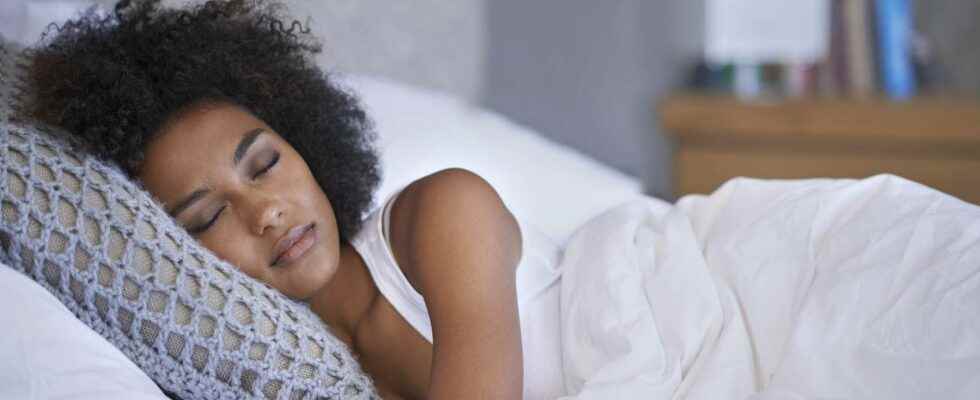Many children ask for a night light in their room or ask that the light be left on in the hallway and the door ajar. Some adults also feel this need and cannot bear to sleep in a totally dark room. If it is well known that the blue light from screens is harmful for falling asleep, what about a small dim light present in the room all night long?
The light is a regulator important to our pace circadian. She controls the secretion many hormone who control our metabolism. According to a study recently published in the journal PNAS (Proceedings of the National Academy of Sciences of the United States)exposure to light during the sleep phase has a negative impact on the risk of cardiovascular disease (high blood pressure, stroke, myocardial infarction) and metabolic diseases such as diabetes. To better understand the underlying mechanisms, the authors exposed a group of healthy adults (n=10) to low light of 3 lux overnight and then at a moderate light of 100 lux the following night. A control group of 10 healthy adults slept two nights in a row in a room with dim light.
Metabolic effects
Greater insulin resistance was noticed after the night in the bright room compared to the night in the dark room. Insulin is a hormone secreted by the pancreas which regulates blood sugar levels blood sugar). Greater insulin resistance means the body needs more insulin to regulate its blood sugar levels. Eventually, this can lead to dysfunction of the pancreas and the occurrence of a Type 2 diabetes.
Furthermore, the sleep was of lower quality in the lighted room (movements rapids of eyes during sleep).
Cardiovascular effects
A more sustained and more variable heart rate was observed in those who did not sleep in the dark. It is known that a higher heart rate can represent a risk factor cardiovascular. However, this study is based on only 20 participants and over a very short period of time (two nights). Additional studies would be necessary to invalidate or confirm these initial observations.
And low light?
In this experiment, participants were exposed to moderate light in the order of 100 lux. In addition, the lighting used in this study came from the ceiling. Nothing to do with the brightness of a night light for children, coming from the ground! If it seems clear enough that leaving the light on in the bedroom is not good for our health or quality of our sleepthere is no risk in sleeping with a small light.
Support your independent scientific media: discover our subscription formulas!
4 good reasons to subscribe to Futura on Patreon:
- A site without any advertising from 3.29 euros per month.
- It is without commitment.
- Access to priority content, in preview, just for you.
- You support our business in the best possible way. A real motivation for us!
Interested in what you just read?

